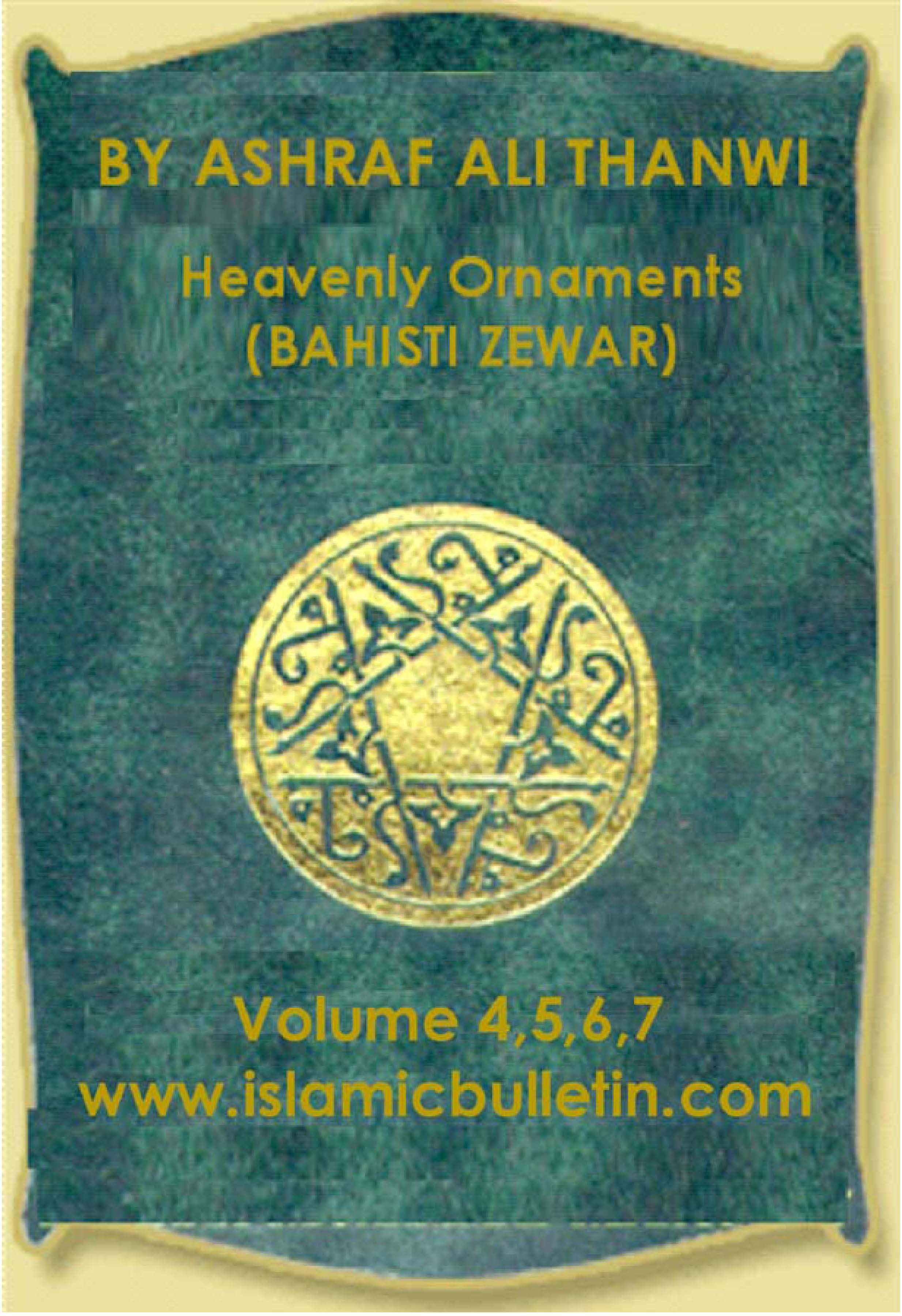![]()
|
Bahishti Zewar |
|
(Heavenly Ornaments) |
|
Part Four Index NIKÂH -Marriage, TALÂQ –Divorce (see next section), 'Iddah, Maintenance, Custody, Glossary |
NIKÂH - MARRIAGE
Persons with whom Nikâh is Harâm
The Wali or Legal Guardian
The Question of Compatibility or Kufû'
Mahr - Dowry
Mahrul Mithl
The Marriages of the Kuffâr
Equality among Wives
The Virtues and Rights of Marriage
GLOSSARY
NIKÂH - MARRIAGE
1. Nikâh is a great bounty from Allah Ta'âlâ. The affairs of this world and the hereafter are put in order through marriage. There is a lot of wisdom and many benefits in marriage. A person saves himself from sinning and his heart is put at ease. He does not have any evil intentions and his thoughts do not begin to wander and stray. The greatest virtue is that there are only benefits and only rewards in this. This is because a husband and wife’s sitting together and engaging in a loving conversation, joking with each other, etc. is better than nafl salât.
2. A marriage can be executed by just two words, e.g. a person says the following words in the presence of witnesses: "I give my daughter to you in marriage." The person who is addressed replies: "I accept her in marriage." In so doing, the marriage is valid and both of them are lawful husband and wife. However, if the person has several daughters, the nikâh will not be executed by his uttering the words mentioned above. He will have to mention the daughter by name, e.g. he says: "I give my daughter, Qudsiyyah, to you in marriage", and the person replies: "I accept her in marriage."
3. A person says: "Give so-and-so daughter of yours to me in marriage." The father replies: "I give her to you in marriage." In so saying, the nikâh will be valid irrespective of whether he says that he accepts or not. (In other words, it is not necessary for the word "accept" to be mentioned).
4. If the daughter is present and the father says: "I give this daughter of mine in marriage to you", and the person replies: "I accept her", the nikâh will be valid. It will not be necessary to mention her name.
If the girl is not present, it is necessary to mention her name and the name of her father in such a loud tone that all the witnesses are able to hear. If the people do not know the father and there is a strong possibility that by mentioning his name they will still not know whose nikâh is being performed, then it will be necessary to mention the name of the grand-father as well. In other words, such identification is necessary whereby those present immediately know whose nikâh is being performed.
5. In order for a nikâh to be valid, it is also essential for at least two males or one male and two females to be present, to hear the nikâh being performed, and to hear the two words (i.e. the offer and the acceptance) being uttered. Only then will the nikâh be valid. If two persons sit together in privacy and one says to the other: "I give my daughter to you in marriage" and the other person replies: "I accept your daughter", the nikâh will not be valid. Similarly, if the nikâh was performed in the presence of one person only, even then the nikâh will not be valid.
6. If there are no males present, but only females, the nikâh will not be valid even if there are ten females present. Together with two females, one male has to be present.
|
|
|
|
